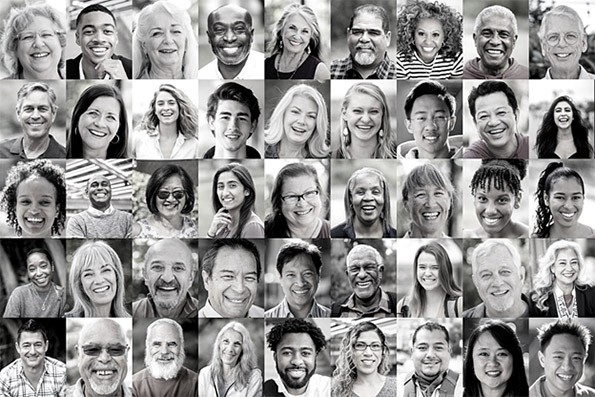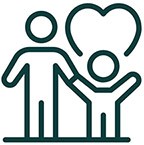Did you know there is a law in New Brunswick that protects you from harassment and discrimination?
Discrimination is when someone treats you negatively because of your identity or personal trait, like your race, national origin, or family status.

Did you know there is a law in New Brunswick that protects you from harassment and discrimination?
Discrimination is when someone treats you negatively because of your identity or personal trait, like your race, national origin, or family status.
The New Brunswick Human Rights Act (Act) protects you from discrimination in 5 areas or activities of your life. These include employment (ex. new or existing position), housing (ex. apartment or any other rental properties), services (ex: restaurants, schools, businesses, shops, government services, etc.), publicity (signs, advertisements, publications, etc.), and some associations.
For example, the Act protects you from discrimination:
 when you rent an apartment (housing);
when you rent an apartment (housing);
 when you go shopping or eat at a restaurant (services);
when you go shopping or eat at a restaurant (services);
 when you go to school (services);
when you go to school (services);
 when you apply or are interviewed for a job (employment);
when you apply or are interviewed for a job (employment);
 when you are part of a union (business or trade association).
when you are part of a union (business or trade association).
Click here for more information on the areas of discrimination: Introduction to areas of discrimination.
The Act has 16 grounds of discrimination. These grounds represent your identity or personal characteristics (ex: race, colour, religion), which could make you more vulnerable to discrimination.
The grounds are:
10. Marital status
11. Family status
12. Sex (including pregnancy)
13. Sexual orientation
14. Gender identity or expression
15. Social condition (includes your source of income, level of education and type of occupation)
16. Political belief or activity
The Act has additional protections for sexual harassment and reprisal (i.e. when you are treated negatively because you filed a human rights complaint, or you helped with an existing complaint).
Click here for more information on the grounds of discrimination: Introduction to grounds of discrimination
If you have a need related to one of the grounds, your employer, landlord or service provider must accommodate your reasonable request for that need. This is called the duty to accommodate and it is the law.

For example:
You take care of a family member suffering from a chronic illness (family status) and need a break from work to take them to their weekly doctor’s appointments. Your employer has a duty to accommodate your work schedule so you can meet your caregiving needs.
The duty to accommodate means that employers (or housing/service providers) should make changes to their rules or policies to prevent discrimination against individuals protected by the Act.
If it becomes too difficult for an employer to accommodate your need (for example due to safety reasons), then they can deny your accommodation request BUT it’s not automatic! This is called undue hardship.

Race and ancestry discrimination in services:
Tao is a high school student (services). One of his teachers constantly picks on him and makes comments about his Asian heritage (race and ancestry). Tao feels uncomfortable and thinks his teacher is promoting racial stereotypes in the classroom.

Family status discrimination in housing:
Juan lives in an apartment complex (housing) with his partner and they are having a baby (family status). When Juan tells the landlord of the expected change in his family, the landlord asks the couple to move out because of the building’s adults-only policy.

Mental Disability discrimination in Services:
Jacques relies on a service animal for his mental disability and goes to a shopping centre (services). At one of the stores, the manager tells him that he cannot enter with his dog. Jacques informs them that the dog is a service animal, but he is still denied entrance.

Reprisal in employment:
Imani is a temporary foreign worker and works in the food industry (employment). She files a human rights complaint on the basis of gender as her employer makes inappropriate comments to the female staff. Once the employer learns about the complaint, he fires Imani (reprisal) and tells other employers in the area not to hire her.
The New Brunswick Human Rights Commission is a government agency that ensures the human rights of all New Brunswickers are protected under the Act. The Commission provides free information about your rights and will help you if you face discrimination in New Brunswick.
If you think you have experienced discrimination, you can file a complaint with the Commission. The Commission's complaint mechanism is called the compliance process.
To file a complaint, we suggest:
You can reach us at:
(506) 453-2301 or [email protected]